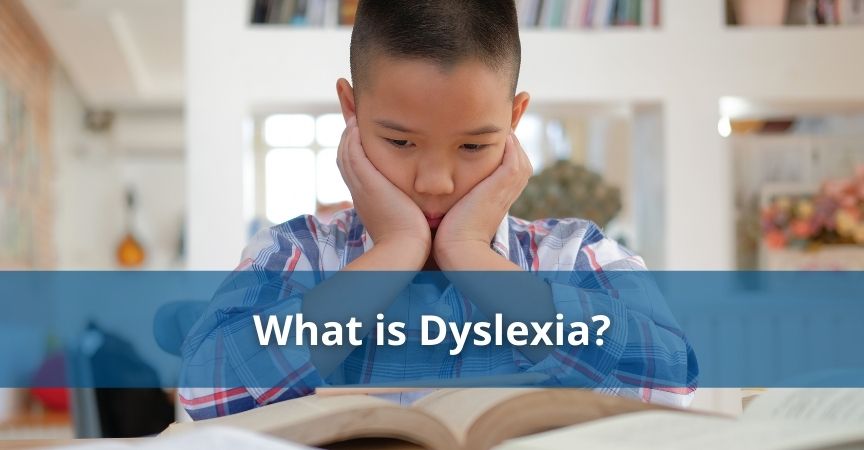Dyslexia Defined
Dyslexia is defined as an unexpected difficulty in reading in relation to a person’s higher level of intelligence. It is considered a language-processing disorder that affects how a person deciphers spoken or written language including the ability to effectively read, write, spell or comprehend text. Despite common misconceptions, this learning disability is not a reflection of a person’s intellectual functioning or creativity, and when addressed early, a child can be provided with ample tools and strategies to overcome language challenges in the classroom and throughout life.
Dyslexia is the most common learning disability that affects about 15-20% of the entire population and represents over 80% of all individuals with a diagnosed learning disability. It has become so prevalent in traditional school populations that many states now require additional dyslexia-specific training for classroom teachers, California included. California governor, Gavin Newsome has proposed a groundbreaking dyslexia screening assessment that would be administered to all kindergarteners in the state as a preemptive measure.
Essential Components of Reading Instruction
There are five essential components of reading instruction that develop literacy skills. A deficit in a single one of these five areas can cause a significant reading problem for a student. As a parent, it is important to understand the significance of literacy development and recognize when your child may be struggling, but it can be incredibly difficult to differentiate underdeveloped skills from a more serious concern, like dyslexia.
The five components of reading instruction:
- Phonics
Correlating sounds with letters or groups of letters such as recognizing that the letter Aa makes a short a sound (ă) as in apple or the long a sound (ā) as in acorn. - Phonemic awareness
The ability to hear, identify and manipulate individual sounds in spoken language such as identifying the sounds /c/ and /a/ and /t/ in the word “cat.” Students with dyslexia especially struggle with this concept. - Fluency
The ability to read with accuracy, rate (speed), and prosody (proper expression). Students with dyslexia commonly ignore punctuation and read slowly with little inflection. - Vocabulary
Consists of words that are read and understood that build oral and written language. Poor phonological awareness creates difficulty in building vocabulary. Deficits in vocabulary affect comprehension, or the ability to understand what the text means. - Comprehension
The ability to process text, understand its meaning and integrate content with what the reader already knows.
There are many approaches to literacy that can help students with dyslexia manage the difficulties that they face. Structured literacy programs are commonly used to address the needs of dyslexic students because of their use of direct instruction, and scaffolded structure that stacks foundational skills and slowly integrates more challenging skills. Balanced literacy uses more real-world application and a multi-sensory approach to teach the same reading skills.
Dyslexia Assessments
There are multiple clinical assessments that can be administered as a formal evaluation of dyslexia in a student. Different exams can be used to assess students of different ages or to focus on a specific area such as language development, auditory processing, or writing. It can be helpful to speak with a Special Education professional to understand what assessments are offered through your district and what may be the best course of action for your child.
Informal assessments should be conducted regularly by your child’s teacher in the form of observations, a collection of written or presented work, reading assessments, and benchmark assessments. The state of California requires teachers to assess and monitor students’ reading levels and plan Response to Instruction (RTI) support for students who they recognize as struggling with certain aspects of reading. Tiered instruction can provide students with explicit instruction based on individual needs and help teachers and specialists identify if there is a greater need for more in-depth assessment.
What Every Parent Should Know
Children who are diagnosed with a learning disability like dyslexia are eligible for educational services and accommodations that will assist them in developing tools to succeed in the classroom and take into account their needs while testing through an Individualized Education Plan (IEP).
Jennifer Chang is an experienced Education Rights Attorney in California. She has successfully assisted many students with disabilities and their families to understand their legal rights surrounding intellectual disabilities like dyslexia and help them receive the services they deserve. To schedule an appointment with Jennifer, contact her office today.
